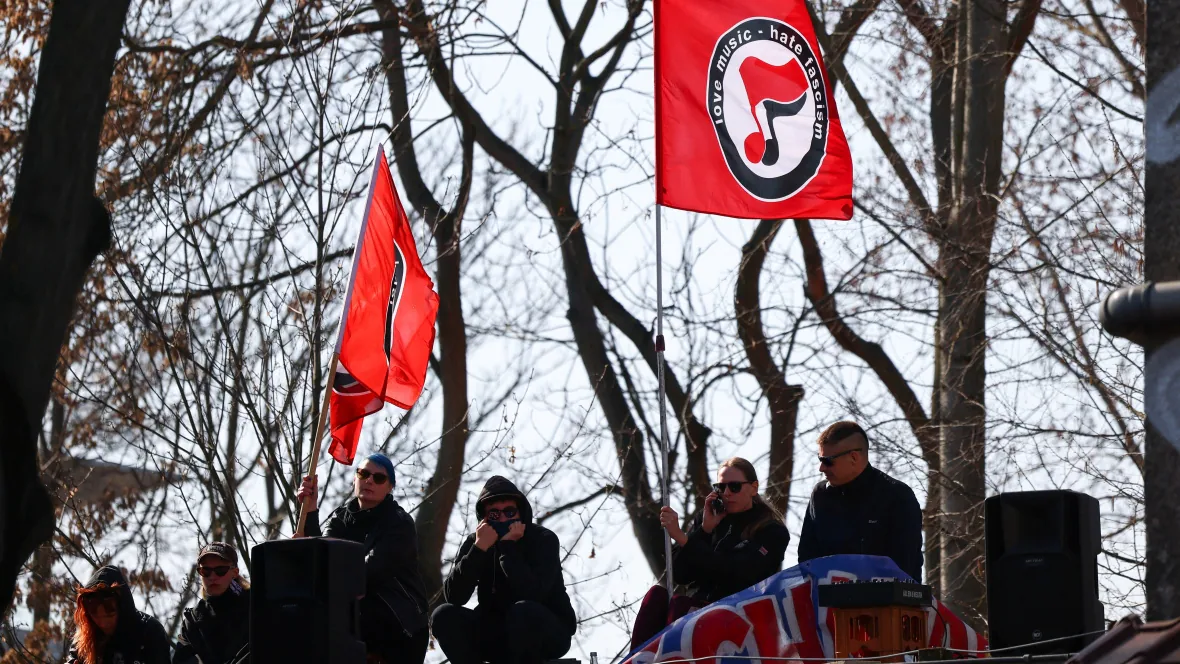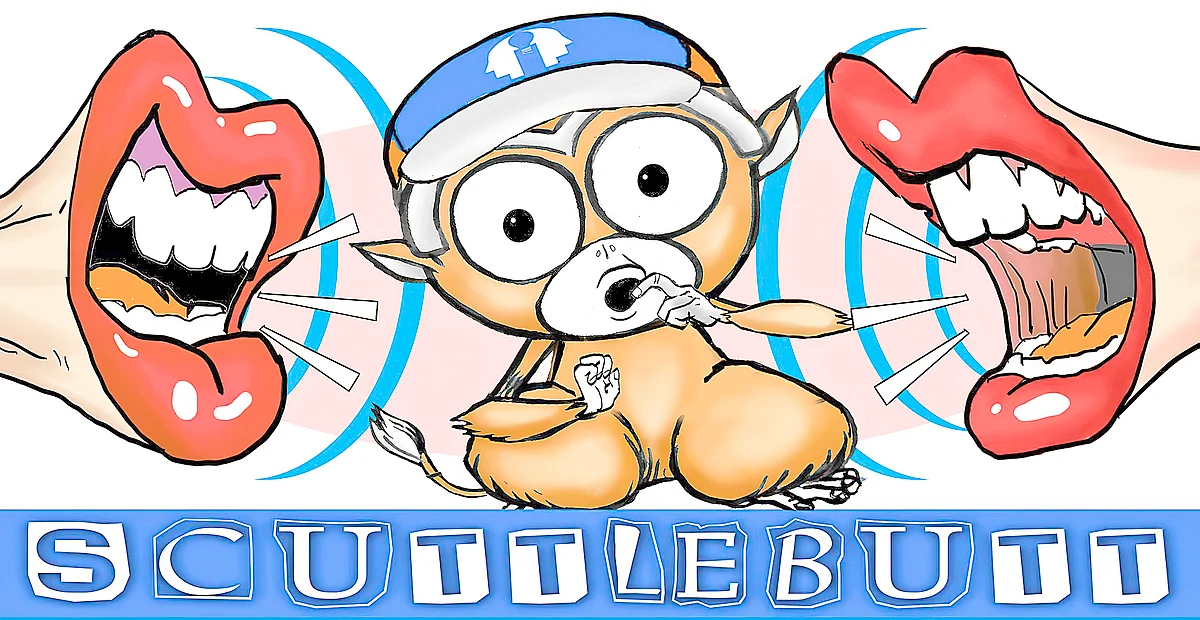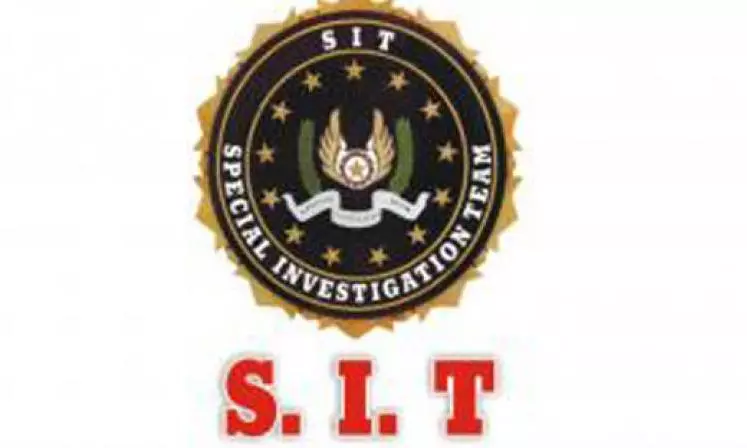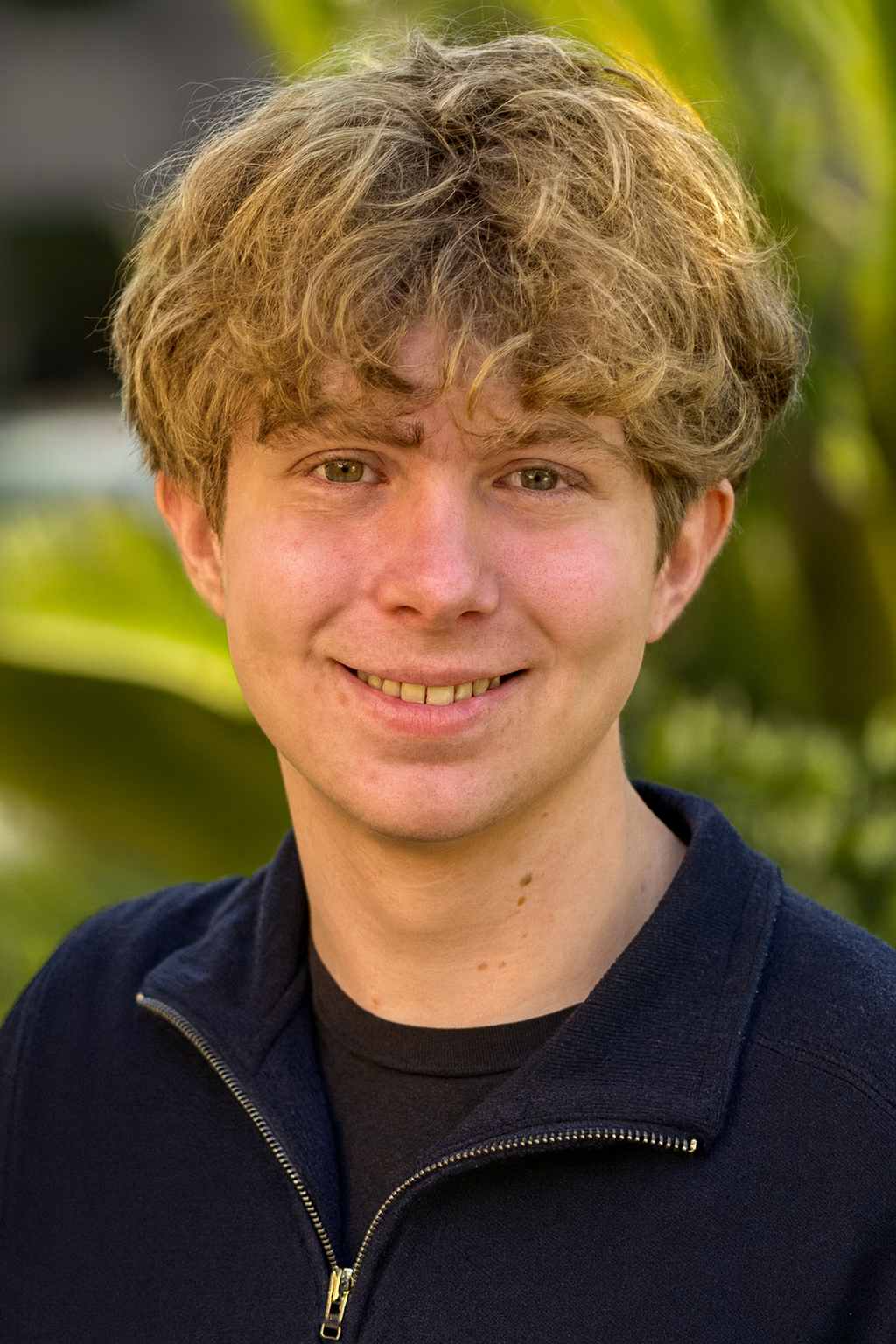By David Michael Lamb
Copyright cbc

U.S. President Donald Trump says his administration will find out who is funding the Antifa movement, following his comments earlier in the week that he would designate Antifa as a major terrorist organization, calling it a “sick, dangerous, radical left disaster.”
Antifa, short for anti-fascist, has been in the news for years. Since his first term, Trump has blamed it for poisoning political discourse and causing violence.
In the wake of Charlie Kirk’s killing, Trump’s vice-president, JD Vance (who was also a friend of Kirk’s), said the “incredibly destructive movement of left-wing extremism” had helped lead to Kirk’s assassination.
What is Antifa?
The term refers to a global, loosely knit collection of people who see themselves as protecting society from neo-Nazis, other white supremacists and homophobes. They expose their opponents online, train in self-defence, organize counter-protests and try to stop right-wing messages from spreading.
But Antifa is not a formal organization in the way that political parties, companies or interest groups are.
Anti-fascist movements have existed as long as fascism has. They first sprung up in Benito Mussolini’s fascist Italy in the 1920s and kept growing up to and through the Second World War. But even after Nazism was defeated, anti-fascists didn’t go away.
The precursor of Antifa is Anti-Racist Action, according to Mark Bray, a professor at New Hampshire’s Dartmouth College who wrote Antifa: The Anti-Fascist Handbook. Anti-Racist Action was also a decentralized group opposing right-wing people and ideas that emerged in the 1980s. Antifa grew out of that.
In 2020, then-FBI director Christopher Wray said Antifa is a real thing, and added that his agency had investigated “violent anarchist extremists” who identify with Antifa.
However, Wray also said he was investigating violent acts, not ideas, characterizing Antifa as an ideology, not an organization with a hierarchical structure.
Does Antifa exist in Canada?
Yes, in that there are people who say they are anti-fascist activists who try to stop neo-Nazis and white supremacists from spreading their ideas to others.
In 2020, CBC’s The Fifth Estate interviewed Antifa activists. Most wanted their identities hidden, in part because they feared being attacked.
They described running online campaigns aimed at getting people fired for belonging to white supremacist organizations. They also spoke about confronting far-right groups at protests.
One Antifa activist told The Fifth Estate that silencing her opponents is the goal, and that it’s justifiable to use violence to achieve that. “Physically blocking someone, if that’s what it took? Sure. Punching someone in the face or throwing a milkshake on them? Sure.”
They said they are trying to protect society. But now, especially in the U.S., Antifa activists are being accused of threatening the safety and rights of others.
The move to label Antifa as terrorists in the U.S.
Trump’s criticism of Antifa dates back to the early part of his first term as president, especially after clashes between Antifa and participants of a white supremacist march in Charlottesville, Va., in 2017.
One of the first attempts to formally stop Antifa came in 2019, when U.S. Republican senators Bill Cassidy and Ted Cruz introduced a resolution in the Senate to condemn its violent acts and to designate it a domestic terror organization. It was referred to a committee but went no further. A similar resolution was introduced in the House by Marjorie Taylor Greene in 2023, which was also sent to a committee for study.
In 2020, Trump blamed Antifa for violence following the death of George Floyd and repeated his desire to have it designated a terror group.
Then the killing of Charlie Kirk earlier this month put the issue back at the top of Trump’s agenda. This week in the Oval Office, he blamed the “radical left” for “tremendous violence,” without offering any evidence. “The radical left really has caused a lot of problems for this country. I really think they hate our country.”
Yesterday Trump said in a Truth Social post that he would designate Antifa as a “major terrorist organization.”
Can he do that?
The U.S. State Department does have a list of foreign terror organizations. Dozens of groups, including the Islamic State and al-Qaeda, are included on that list. The designation enables the Justice Department to prosecute those who give material support to entities on that list even if that support does not result in violence.
But Trump’s promise led to some head-scratching, because no domestic equivalent to that list exists. Despite periodic calls to establish a domestic terrorism law, there is no singular statute.
It’s unclear how the administration would label what is effectively a decentralized movement as a terrorist organization, and the White House did not immediately offer more details.
Beyond specific acts of violence, it’s also not clear what laws Antifa would be breaking in the U.S. The Supreme Court has ruled many times about speech that threatens violence. In most cases, people can only be prosecuted if they make an imminent threat of violence or lawlessness. Exactly where that line falls is still a matter of debate in legal circles.
More broadly, the right to free speech, even hateful speech, is protected in the U.S., sometimes more than people realize.
This week, Trump’s Attorney General Pam Bondi faced criticism from her own supporters for saying “hate speech” could be prosecuted. Some responded with a quote from Supreme Court Justice Samuel Alito, who wrote in a 2017 decision that, “the proudest boast of our free speech jurisprudence is that we protect the freedom to express ‘the thought that we hate.'”



